 Melissa Anderson
Melissa Anderson
All in the family: the French director’s films explore private lives and blood ties with refreshing insight and tenderness.
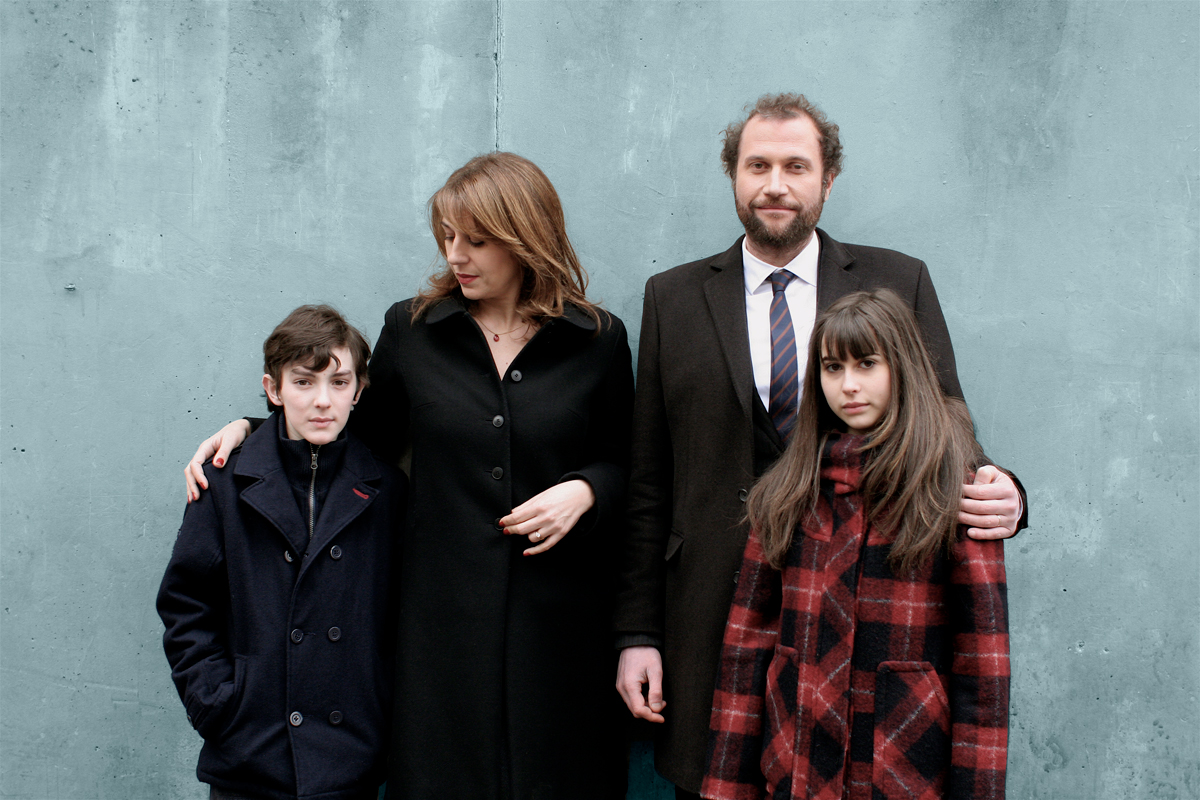
Valentin Vigourt as Benjamin, Valérie Benguigui as Marianne, François Damiens as Simon, and Léopoldine Serre as Delphine in The Wolberg Family. Courtesy the Brooklyn Academy of Music.
“Petite Solange + the Films of Axelle Ropert,” Brooklyn Academy of Music, 30 Lafayette Avenue, Brooklyn, through March 30, 2023
• • •
The four features that the French filmmaker Axelle Ropert has made thus far are quite modest in scale and subject. All are studies, to some degree, of blood ties, whether of parent to child or sibling to sibling. However small on the surface, though, these films explore, often with great acuity and tenderness, enormous, near-universal conundrums: how to carve out an identity wholly separate from one’s nuclear kin, how not to be suffocated by what Susan Sontag once disparaged as “that claustrophobic unit.”
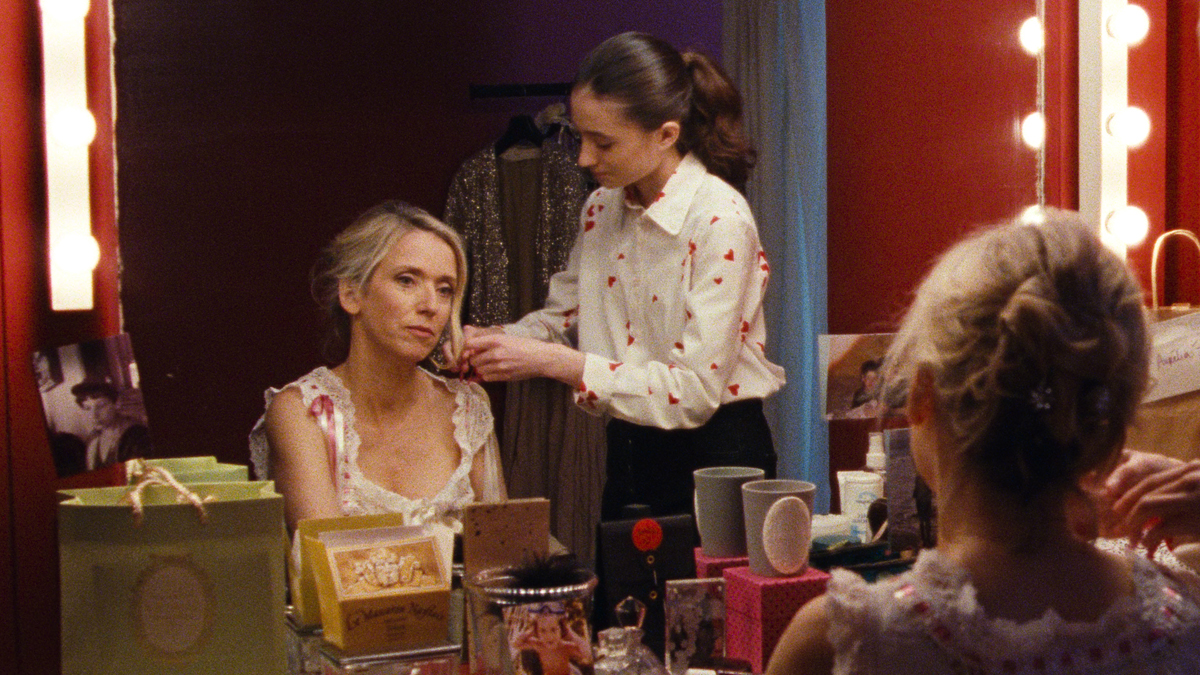
Léa Drucker as Aurélia Maserati and Jade Springer as Solange Maserati in Petite Solange. Courtesy the Brooklyn Academy of Music. © Aurora Films.
Inexplicably, these endearing movies had never received theatrical distribution in the US—a gross oversight now remedied by Several Futures, distributor of Ropert’s latest, Petite Solange, which will play at BAM for at least a week, accompanied by screenings of her three previous titles, in the first retrospective devoted to the director in this country. “I always think of my films as a viewer: What do I want to see on screen right now? I’m trying to fill gaps,” Ropert explained in a 2014 interview for the Film Comment blog. For those in search of fresh approaches to the nuclear-family drama, one of the most hidebound of genres, Ropert’s work exhilarates.
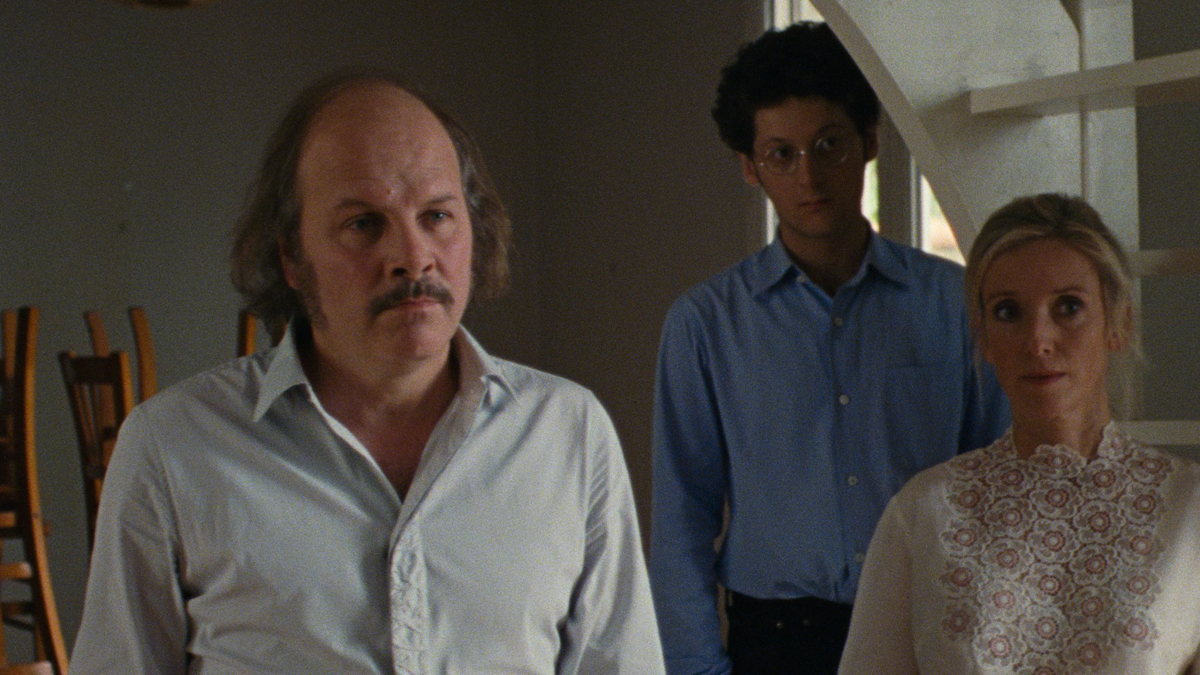
Philippe Katerine as Antoine Maserati, Grégoire Montana as Romain Maserati, and Léa Drucker as Aurélia Maserati in Petite Solange. Courtesy the Brooklyn Academy of Music. © Aurora Films.
Born in 1972, Ropert began her career in film as a critic, serving as editor-in-chief of the short-lived magazine La lettre du cinema. There and at other outlets, Ropert, never shy about savaging a movie she detested, earned a reputation as an “ayatollah of film criticism,” as she noted in that 2014 Q&A. She was one of a coterie of cinephile writers affiliated with La lettre who would go on to make films themselves, mirroring the trajectory of Godard, Truffaut, and the other New Wave godheads who wrote for Cahiers du cinema before going behind the camera. Ropert has frequently collaborated with Serge Bozon, perhaps the best-known La lettre alum, writing or cowriting all of his features—two of which, Tip Top (2013) and Mrs. Hyde (2017), starred Isabelle Huppert and found US distribution. He, in turn, has acted in all but one of her films. (That collaboration continues offscreen, too: former romantic partners, they have two kids together.)
Ropert’s scripts for Bozon span a wide assortment of genres—the war movie, the policier, the science-fiction film, the musical. But these categories are often upended and expanded; Tip Top, for example, nominally a detective story, includes not only slapstick and S-M but also an astute examination of France’s colonialist past. If Ropert’s own work as writer-director doesn’t range as extensively, her intimate films are no less inspired and surprising.
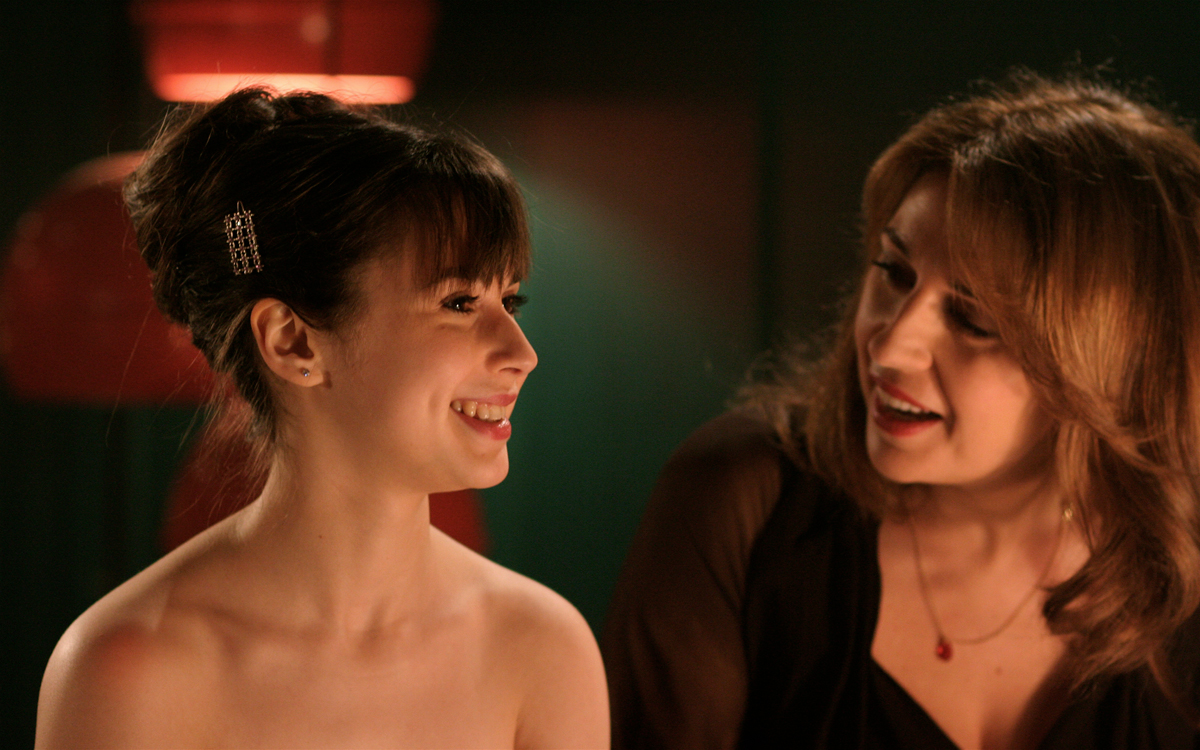
Léopoldine Serre as Delphine and Valérie Benguigui as Marianne in The Wolberg Family. Courtesy the Brooklyn Academy of Music.
They are defined by piquant details and eloquent (but never recherché) dialogue rich in emotional insights—like the declaration “Family isn’t sexy,” made by the soon-to-be-eighteen Delphine (Léopoldine Serre) in The Wolberg Family (2009), Ropert’s feature debut. The teenager, like her younger brother and mother, is often overwhelmed by the need for closeness demanded by the amiable yet overbearing Wolberg paterfamilias, Simon (François Damiens), a boosterish small-town mayor in southwest France. His civic duties include delivering a rousing speech on R&B legend Maxine Brown before a group of tiny schoolkids, whose école primaire is being named in her honor (soul nuggets, like Bettye LaVette’s “Let Me Down Easy,” dominate the soundtrack). At home, the elected official faces a less compliant audience. To his insistence that a family should have no secrets (though Simon himself is hiding something), his wife, Marianne (Valérie Benguigui), flatly—and unimpeachably—responds, “We all have our private world.” Impassioned but never hysterical or maudlin, The Wolberg Family suggests that, as far as nuclear units are concerned, sometimes the parts are greater than the sum.
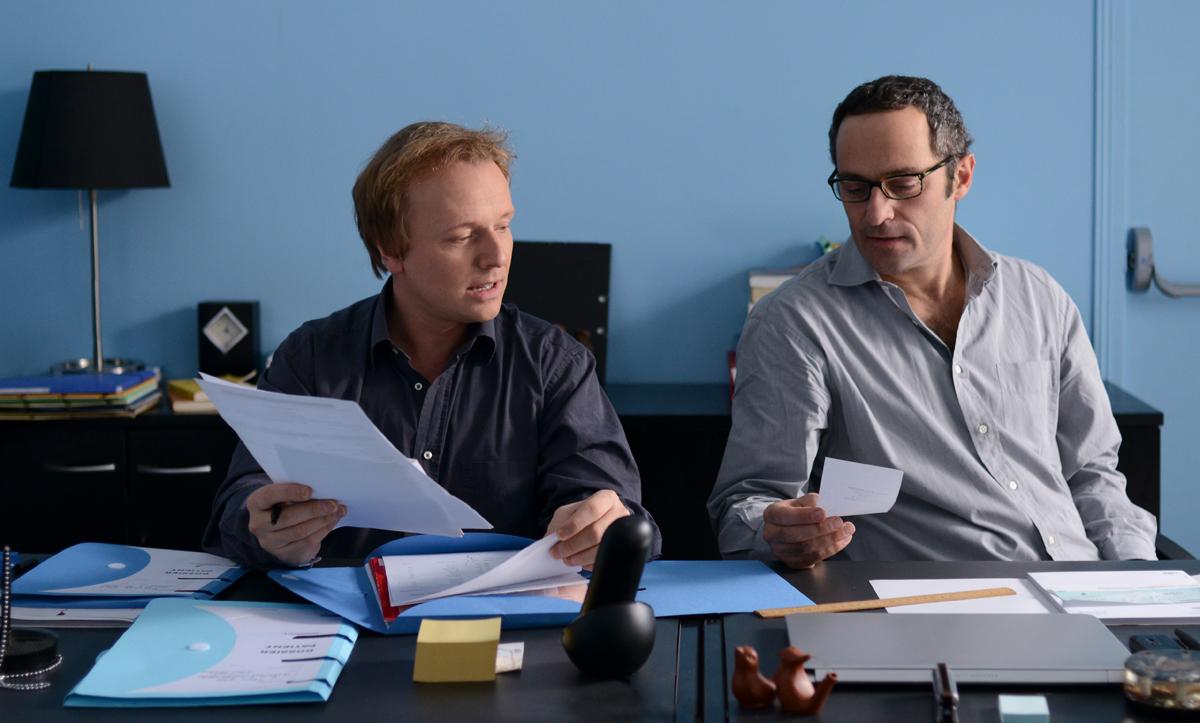
Laurent Stocker as Dimitri Pizarnik and Cédric Kahn as Boris Pizarnik in Miss and the Doctors. Courtesy the Brooklyn Academy of Music.
The siblings at the center of Miss and the Doctors (2013), my favorite of the Ropert quartet, are so close that they seem to inhabit the same public and private worlds. Physician brothers Boris (Cédric Kahn) and Dimitri (Laurent Stocker), both bachelors and childless, live in the same apartment complex and write prescriptions at desks side by side. They are beloved fixtures in their neighborhood, Paris’s rarely filmed Chinatown, in the thirteenth arrondissement. The MDs find their bonds tested when they both fall in love with the same woman, Judith (Louise Bourgoin), the single mother of one of their patients, a diabetic pubescent girl.
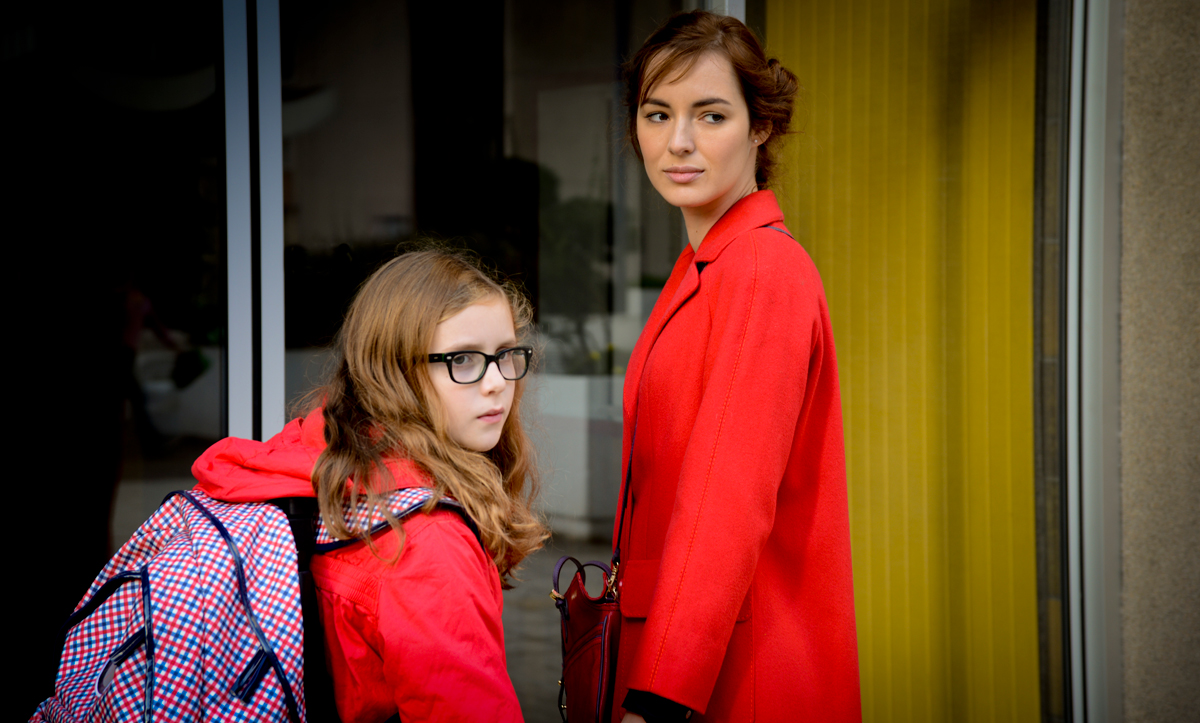
Paula Denis as Alice and Louise Bourgoin as Judith Durance in Miss and the Doctors. Courtesy the Brooklyn Academy of Music.
But this love-triangle tale steadfastly avoids clichés and predictability. Each of the three principals maintains an air of mystery, particularly as they circulate through their quartier at night, illuminated by the neon glow of the signs of Asian restaurants and bubble-tea shops. Although existing as part of a dyad, whether fraternal or romantic, the main characters are often seen in isolation: Judith on her way to her late shift at a craft-cocktail bar, Dimitri en route to an AA meeting, Boris hurrying to the hospital. One of the most mundane actions—walking in a city alone—becomes something profound, each character appearing to be absorbed in an interior monologue that we are all too eager to hear. (That’s not the case with The Apple of My Eye, a romantic comedy from 2016 that also features two Paris-dwelling brothers, both struggling musicians and each falling for one of a pair of sisters, one of whom is blind. The nimbleness that’s often a hallmark of Ropert’s work is absent here; the humor is too broad, the acting too frantic.)
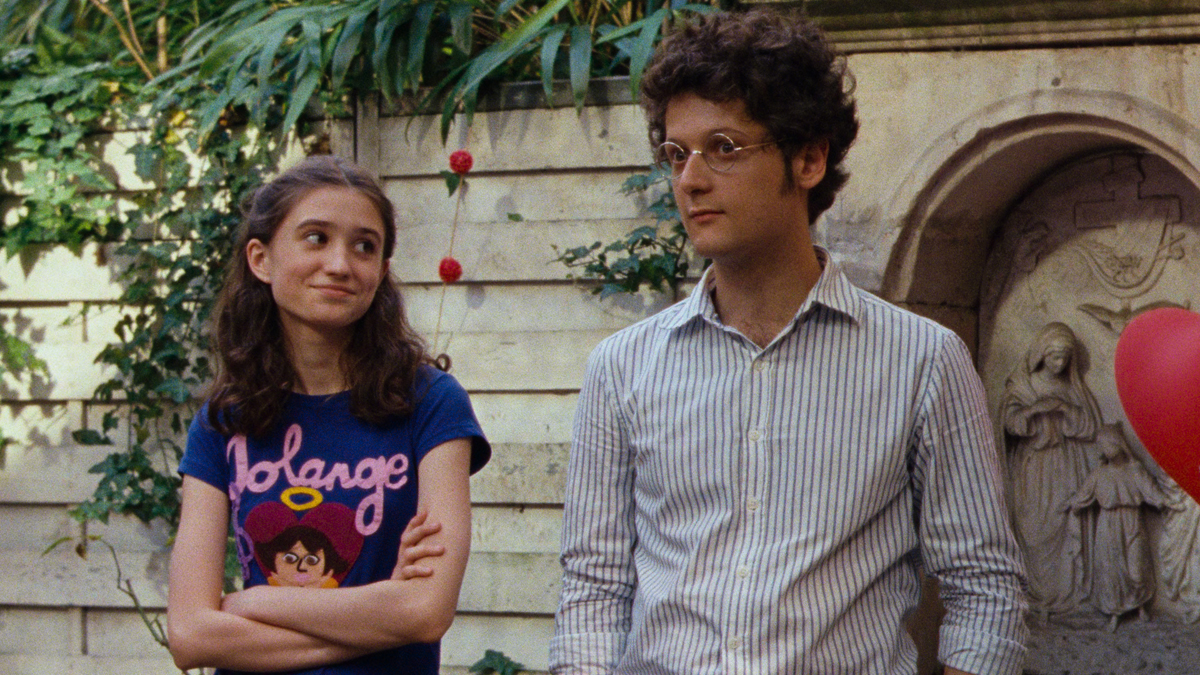
Jade Springer as Solange Maserati and Grégoire Montana as Romain Maserati in Petite Solange. Courtesy the Brooklyn Academy of Music. © Aurora Films.
Petite Solange, which premiered in 2021, returns to the nuclear tetrad explored in The Wolberg Family. But this time, it is the thirteen-year-old title character who is most invested in the sanctity of her clan. Solange (Jade Springer) is equally devoted to each member of her Nantes household: twenty-one-year-old brother Romain (Grégoire Montana), soon to leave for a master’s program in Madrid; mom Aurélia (Léa Drucker), an actress; dad Antoine (Philippe Katerine), a music-shop proprietor. But when her parents’ marriage begins to falter, so too does the sensitive girl. The most calamitous moments in Solange’s life remain offscreen, giving us more time to observe her as she navigates the quotidian challenges of early adolescence, often with the support of her BFF, Lili (Marthe Léon, delightfully tomboyish). Springer’s performance, alert but never ingratiating, is testament to Ropert’s gift for casting highly memorable teenage and younger actors, several of whom have made their big-screen debuts in her films. Solange will struggle to more clearly understand her father’s assertion that “children and adults live in different worlds.” Private worlds, different worlds: for Ropert, these are planets best viewed in orbit, one never to eclipse the other.
Melissa Anderson is the film editor of 4Columns and the author of a monograph on David Lynch’s Inland Empire from Fireflies Press.